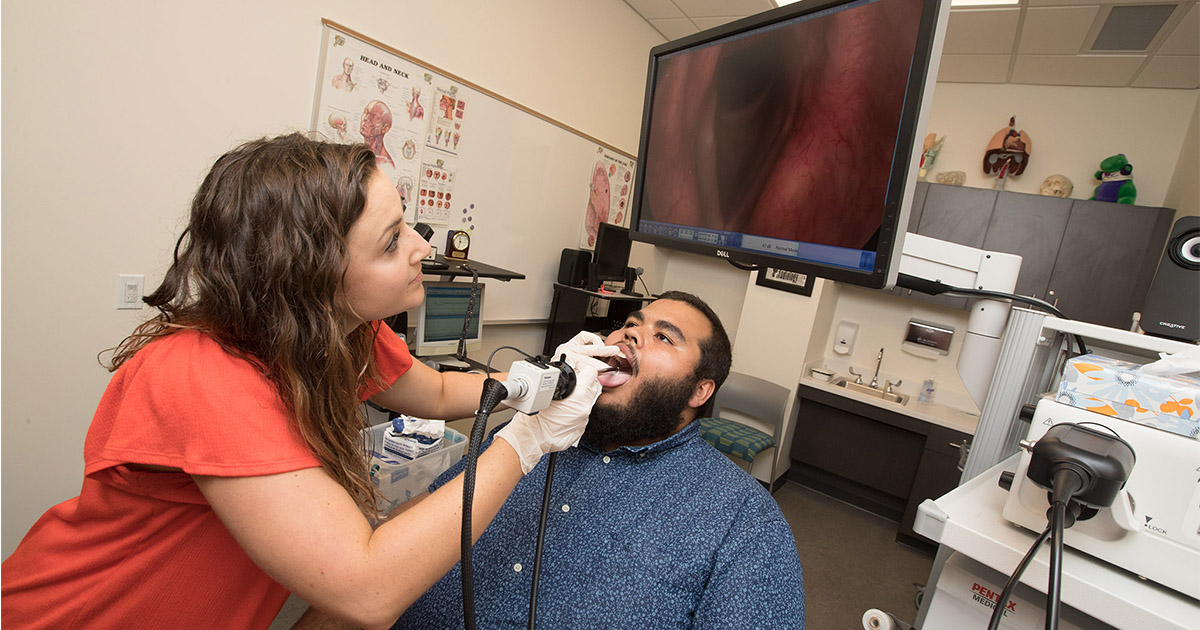Understanding How a Speech Pathologist Works with Various Age Ranges
Understanding How a Speech Pathologist Works with Various Age Ranges
Blog Article
Just How a Speech Pathologist Can Help Improve Communication Abilities
Effective communication is a cornerstone of specialist and individual success, yet numerous individuals encounter difficulties that prevent their capacity to express themselves clearly. A speech pathologist is geared up to deal with these barriers through targeted analysis and treatment methods customized to every individual's needs. By using evidence-based healing strategies, they not only work to improve speech and language problems yet likewise enhance overall communicative capability. Recognizing the diverse function of a speech pathologist reveals just how their experience can change lives, inviting a closer exam of the certain techniques and outcomes linked with their method.
Understanding Interaction Disorders
Comprehending interaction conditions is important for identifying how they affect individuals' capability to share themselves and engage with others. Interaction disorders include a large range of troubles that affect speech, language, and social communication, often impeding reliable communication. These conditions can emerge from various aspects, consisting of neurological conditions, developmental hold-ups, physical problems, or mental problems.
Speech problems may materialize as troubles in fluency, voice, or expression production, impacting exactly how words are obvious or talked. Language disorders, on the other hand, include obstacles in understanding or making use of language, which can impede both verbal and non-verbal interaction. Social interaction problems are identified by difficulties in the pragmatic aspects of communication, such as taking turns in conversation or understanding social hints.
The repercussions of interaction problems are extensive, influencing not just the person's ability to share emotions and thoughts however also their social relationships, educational opportunities, and general high quality of life. Understanding of these conditions can promote empathy and support, encouraging effective strategies for communication and involvement. Recognizing the intricacies of interaction conditions is a critical action in the direction of promoting inclusivity and dealing with the needs of those affected.
Duty of a Speech Pathologist
Speech pathologists regularly play a crucial function in identifying and treating interaction disorders, employing an array of evidence-based methods tailored to each person's requirements. These professionals function with people across the lifespan, from youngsters with speech delays to adults recouping from strokes or distressing brain injuries. Their know-how includes a variety of interaction issues, consisting of expression, voice, language, and fluency disorders.
In healing settings, speech pathologists make use of structured treatments created to enhance interaction skills. They might implement approaches such as speech exercises, language video games, and social communication training to assist in enhancements in responsive and expressive language capacities. Speech Pathologist. Additionally, they enlighten clients and their family members about efficient communication methods and flexible methods to browse day-to-day interactions
Beyond straight treatment, speech pathologists work together with various other healthcare caretakers, educators, and experts to make sure a comprehensive method to therapy. They support for customers by providing resources and support, making it possible for people to attain their communication goals and enhance their general top quality of life. As experts in the field, speech pathologists are vital in promoting reliable interaction, advertising freedom, and enhancing social participation for those with communication challenges.
Evaluation and Diagnosis Process
The evaluation and diagnosis process conducted by speech pathologists usually includes a detailed analysis to identify communication problems properly. This process starts with a comprehensive medical history, where the clinician collects relevant information about the person's clinical, instructional, and developing background. Comprehending the context of the individual's interaction troubles is crucial for an exact diagnosis.
Following the case background, speech pathologists make use of standardized tests and casual analyses to examine various aspects of interaction, including speech sound manufacturing, language understanding, expressive language, and social interaction abilities. These assessments are customized to the person's age and particular concerns, giving useful data for evaluation.
Observation is also an essential element of the assessment procedure, as it allows the medical professional to see firsthand just how the private communicates in all-natural settings. Furthermore, interviews with member of the family and instructors can provide understanding into the person's communication difficulties throughout different settings.
When the analysis is total, the speech pathologist synthesizes the findings to determine a diagnosis and advise suitable treatments. This comprehensive analysis process guarantees that people receive targeted support customized to their unique interaction demands, laying the foundation for efficient healing strategies.
Restorative Strategies and Strategies
Many healing techniques and techniques are used by speech pathologists to address a variety of communication problems properly. One widely used technique is expression treatment, which concentrates on fixing speech seems with rep and aesthetic cues. This technique is especially helpful for people with speech audio problems.
Another effective click over here technique is language intervention, which improves both responsive and meaningful language abilities. This may include interactive tasks that advertise vocabulary advancement, sentence framework understanding, and conversational abilities. Furthermore, speech pathologists commonly make use of social abilities educating to boost practical language capabilities, allowing people to navigate social interactions much more successfully.
Fluency shaping and stuttering modification techniques are specifically developed to help those experiencing fluency disorders. These techniques aid customers establish smoother speech patterns and handle the physical and emotional components of stuttering.
Additionally, alternate and augmentative communication (AAC) systems are employed for people with extreme communication impairments. These systems, which can consist of motions, signs, or electronic tools, supply vital support for reliable interaction.
Benefits of Speech Treatment

Additionally, speech treatment can aid in establishing important listening and comprehension abilities, cultivating much better interaction in discussions. People with cognitive-communication disorders can also profit, as browse around this site therapy focuses on reinforcing memory and analytical abilities, essential for reliable communication.
Another important element is the psychological assistance offered throughout therapy sessions. Speech pathologists create a risk-free environment, motivating clients to overcome anxiousness and disappointment pertaining to their interaction issues. This assistance can result in boosted self-confidence and total mental health.
Furthermore, very early intervention via speech therapy can stop further difficulties, guaranteeing that people reach their full communicative capacity. Overall, the benefits of speech treatment extend beyond plain speech improvement, favorably impacting different measurements of life for those affected by communication troubles.
Conclusion
In summary, speech pathologists play a critical role in attending to interaction disorders with evaluation, medical diagnosis, and tailored restorative treatments. By using evidence-based techniques, these experts improve people' speech and language capacities, fostering enhanced clearness, fluency, and social communication abilities. click over here The benefits of early intervention highlight the value of looking for assistance from speech pathologists, as their competence can dramatically enhance communicative potential, ultimately resulting in greater success in both expert and individual balls.

Speech pathologists often play a crucial role in treating and diagnosing communication conditions, employing a range of evidence-based strategies tailored to each individual's demands. As specialists in the area, speech pathologists are crucial in promoting efficient communication, promoting self-reliance, and improving social participation for those with interaction difficulties.

Report this page